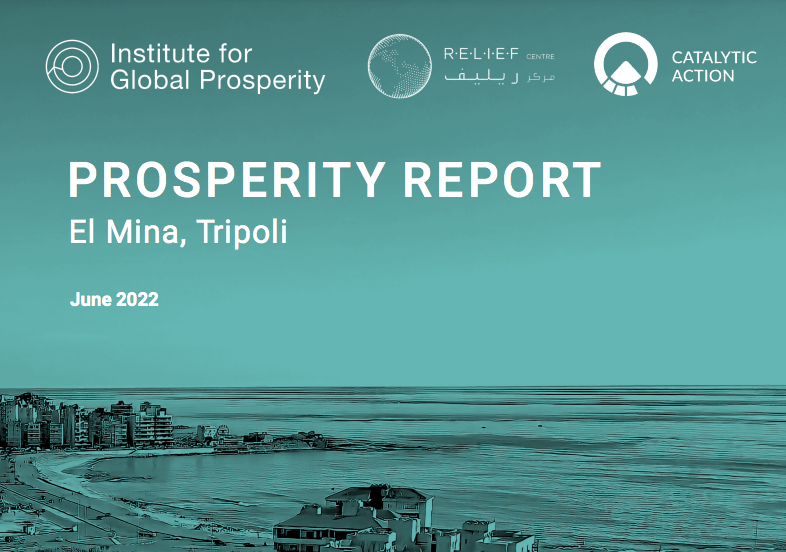The Prosperity Report – El Mina, Tripoli
The third major report led by the Institute for Global Prosperity (IGP), presenting key findings on prosperity in urban research sites across Lebanon

5 October 2022
By Elisabetta Pietrostefani, Joana Dabaj, Mayssa Jallad, Sara Maassarani, Diala Makki, Taha Mersalli, Nikolay Mintchev, Yara Sleiman, Mahmoud Sleiman, and Henrietta L. Moore
The Prosperity Report - El Mina, Tripoli is the third major report led by the Institute for Global Prosperity (IGP, presenting key findings on prosperity in urban research sites across Lebanon. The Prosperity Report – El Mina, Tripoli is the result of a collaborative effort between the IGP-led RELIEF Centre (PROCOL Lebanon), the charity CatalyticAction, and locally-based citizen scientist researchers who are committed to making a positive difference in El Mina and beyond. The report presents data on prosperity and quality of life for a site (El Mina) whose residents are diverse in terms of socioeconomic status, religious identity, and housing tenure whereby both informal settlement housing and privately owned and rented accommodation are present in the area. The report is about prosperity in two significant ways: in terms of content and in terms of practice. With regard to content, the report is organised in accordance with the IGP’s five-domain holistic and context specific prosperity model. In terms of practice, the report is only one milestone in a much bigger programme of collaborative research and action over many years. Prosperity, as conceptualised at the IGP, is a collaborative process in which stakeholders with different kinds of knowledge and expertise come together in order to identify local problems, build collective resources within the community, and envision and create solutions that contribute to meeting needs and alleviating pressing challenges. The report is also a rare study presenting detailed quantitative data for a research site in Lebanon that is outside of Beirut – something that is much-needed in a Lebanese research landscape that is disproportionately focused on the country’s capital at the expense of other cities and towns.
 Close
Close

